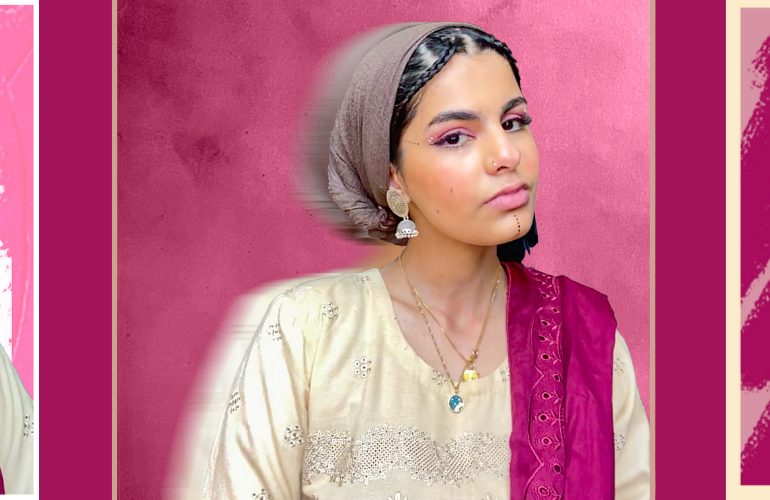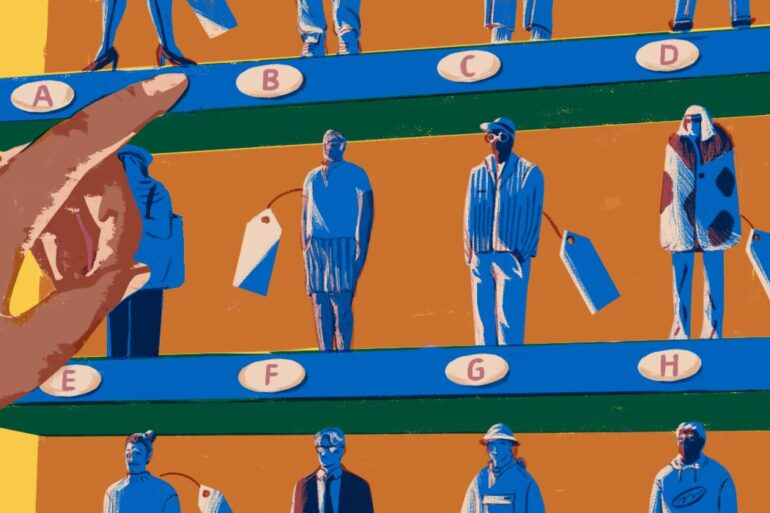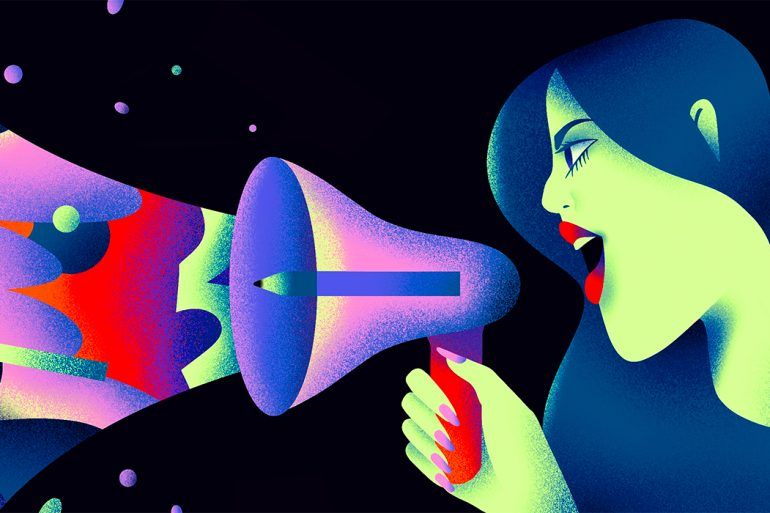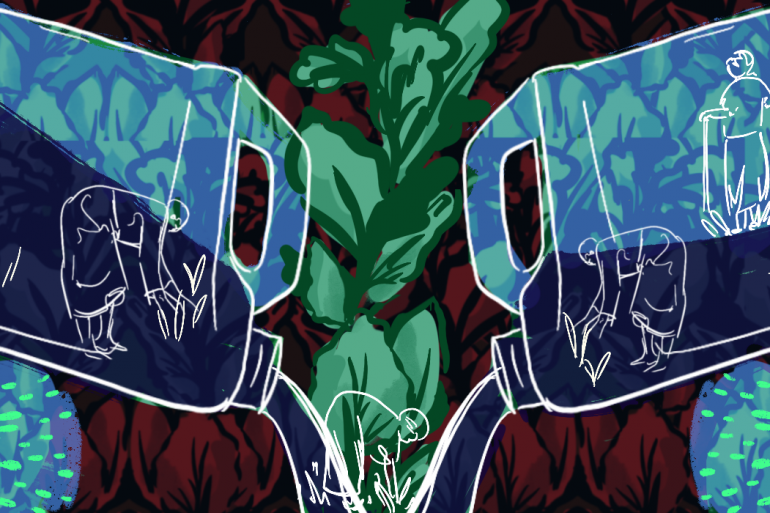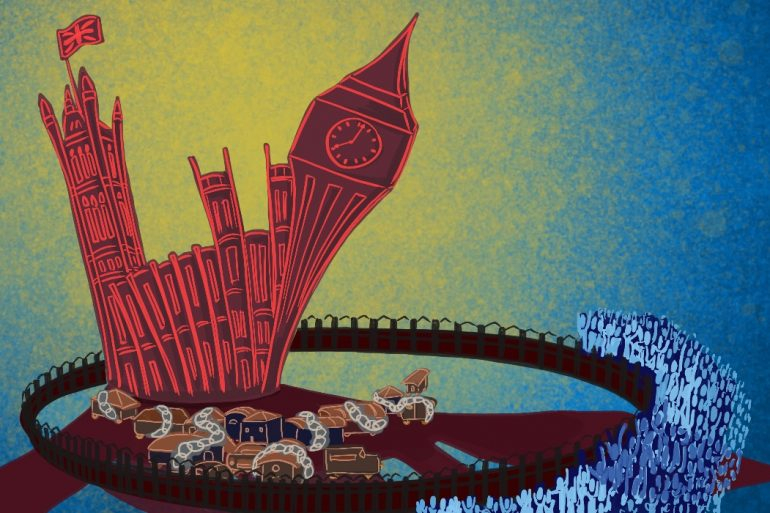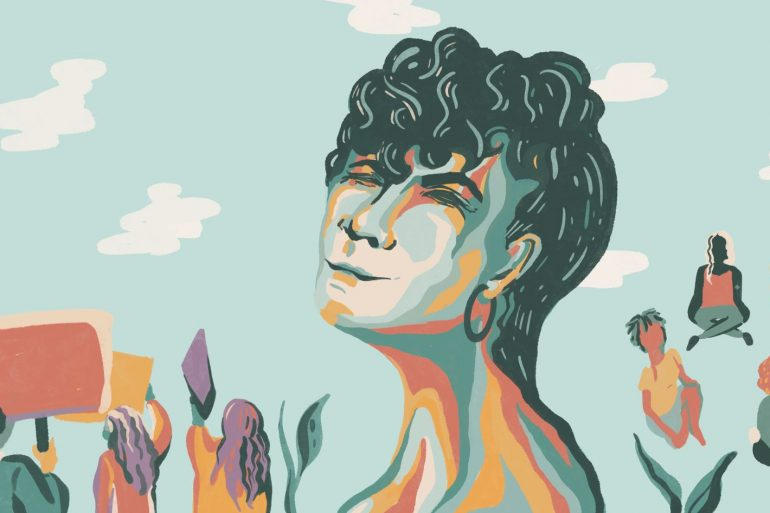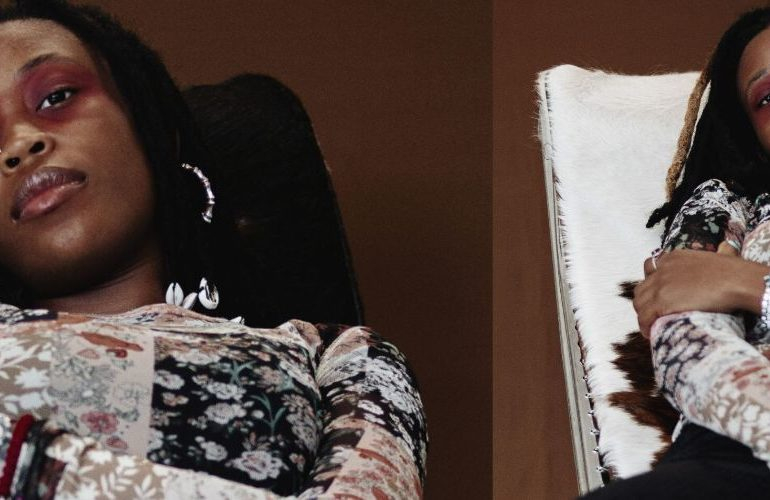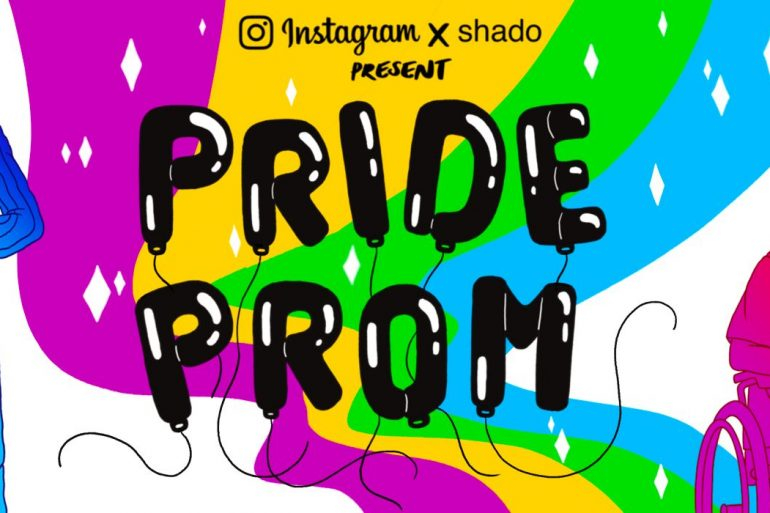A swift-rising and award-winning theatre director, Ola is an exceptional example of a director driving change from within. You could suggest that controversy is key to her work – but it’s more accurate to say that Ola simply makes the audience acknowledge the less-palatable truths around colonialism, race, power and gender. She champions storytelling by creating spaces of inclusion which yield true representation of topics, people and places.
We first came across Ola’s work through her groundbreaking production of The Convert at The Young Vic Theatre. Navigating themes of identity, faith and race with nuance and intelligence, Ola’s direction was crucial in demonstrating the power of theatre in sparking conversations addressing social topics, beyond the physical stage. The fact that she was the sister of one of our long-term contributors Chioma Ince, whose work is featured in both print editions of shado, was the cherry on top – and meeting Ola confirmed a family legacy of creative excellence.

What does change look like in your industry?
The really surprising thing about the arts is that it’s not as liberal as it hopes to be, or thinks it is. So, what you presume is a safe, inclusive space, is actually a space that is quite traditional, and sometimes backward. Before any change can occur there needs to be an accurate diagnosis of what exists. Once the industry understands that its not doing enough, and what its biases are, then we can move forward – but right now, it’s in denial.
The industry isn’t really willing to dig down deep; they’re scared that they might unearth something that they don’t really want to admit to. And it’s not necessarily their fault, but it’s the conditioning of the world.
We live in a racist world, so how can you escape it? No-one can – we’re all touched by it – but the fact that we pretend we’re not is the problem.
Admittedly, there have been some changes – people in power are starting to reflect the world we live in – but there is the idea that, if you programme work that you consider diverse, that’s enough. Or, if you do a few outreach projects, that’s enough. It’s a very limited generosity, and it sometimes feels like box-ticking, or tolerance, rather than embracing each other.
That’s quite a harsh thing to say, but I think it is true. I think it is evident with the work people offer me sometimes, and I think it’s evident with who goes to the theatre; who feels welcome, and I think it’s evident with the kind of boards that exist; who’s on the board for things, and who is Chairing things – there needs to be a radical change, but we can’t do that unless we know what currently exists, and we’re pretending that we exist in a time that we don’t.
What changes do you see yourself contributing to in your field?
One day, I’ll force myself to run a building, and that will be a major contribution. Until then, my biggest contribution is in the rehearsal rooms.
In rehearsal rooms, I make people feel safe, and heard, and seen – especially people of colour. There’s something about knowing that there is someone like you, helping you tell your story, which makes you relax – you don’t have to be on guard, or police yourself, or the room. Sometimes it’s really sad when you are the only person of colour, or the only woman, or the only whatever in the room, and you feel like you have to be the guardian of that thing. So, I know that when I’m in rooms with people, they feel like they can just be artists.
I think also the type of work I make is very particular, in the way it challenges people, and
the way that my work is unapologetic – that’s my contribution, that’s the way I try and change audiences, or change the industry
– because, actually, I think a lot of people say they want to do those kind of things, but they don’t really. And so, I think I’m known to be that person that really will do that.
What I’m battling with right now, is that to make change, you have to have some sort of agency, and to have agency, you have to be powerful – and to be powerful, you have to be recognised, and known, and respected. And how do you do that? How do you achieve that? And so, sometimes it is about having a body of work that is successful, and how do you define successful? It just becomes part of that thing, before you can really make an impact. You can get lost in that – it can be a trajectory that seems really shiny, really exciting – but then, actually, you are not connected to the truth that art is; which is about communicating with people, rather than just with critics. It’s about how you can tie those two things together, which isn’t always sexy – and that’s what people want, that’s what sells, that’s what is marketable. So, I guess, that’s a change that I want to encourage. For us to keep on making art, and to tie it back to: What is this about?
This year, for me, is about reminding myself where I’ve come from artistically, so that we can actually impact people, and not just live in this bubble. That’s hard to do, because when you’re really busy, and successful, and you’re just going from job to job, it’s hard to really connect to actual people – because you’re just going from one appointment to the next. You never really know what’s going on in the world, and that’s where the best art does come from – but if you’re busy, and successful, how can you connect with that? That’s a change I’m hoping to make.
What is the importance of grassroots activism and how can these actions implement change at a higher level?
Just like that! I think it’s all about giving people a place to see themselves, and to really understand what is going on – and also giving people the confidence and the platform to speak. I think that is what it is, in its most simple form; using art to express yourself. And you can do that in really fancy ways, with lights, and haze machines, and amazing lyrics – or you can do it really simply, with two actors and a script – but it’s just about allowing someone to have the opportunity to talk to someone else. Then, if the right person is listening, then amazing things can happen.
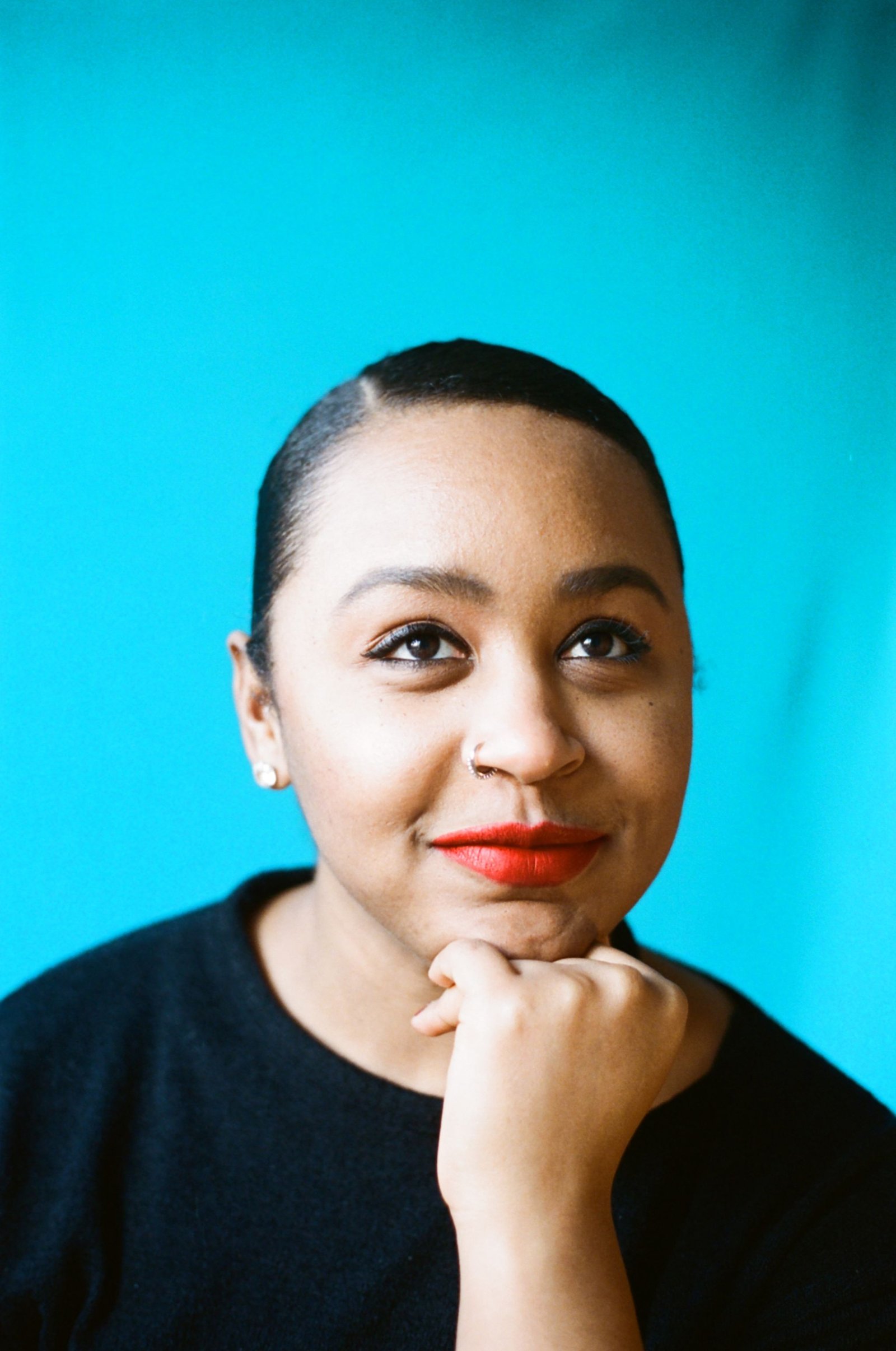
What are you most proud of in 2019?
I’m really mean to myself – I rarely think I achieve anything! I can’t say I’m proud of anything, but the thing I’m most pleased with is my production of Appropriate at the Donmar Warehouse, because I think that it was super controversial; it made people really feel things, it frightened people in a way I didn’t imagine it would.
Subscribe to shado's weekly newsletter
Exclusive event news, job and creative opportunities, first access to tickets and – just in case you missed them – our picks of the week, from inside shado and out.

I think it was really cleverly programmed by Mike Longhurst, who runs the theatre, because, seemingly, it’s a play about a white American family saying goodbye to their Dad, and getting rid of his belongings after he’s passed away – but, actually, it’s a play about the inheritance of slavery.
It’s a play about Americans still thinking that Black bodies are for sale, because it’s a play about lynchings, and how this family deal with all of the evil and greed that they find in their father’s house – and, actually, they don’t deal with it very well at all.
I think what was great was that the audience that came to see it would probably be an audience who didn’t want to think or talk about that.
So, they were kind of lulled into a false sense of security. I think that Brandon has written a play that is so sophisticated that, as time goes on, and the more you reflect on it and see all of the different layers and comments that he’s making without it being abrasive – and I think the cast were fabulous, and really brave, actually.
There were a lot of things that we had to deal with, and speak about, that they wouldn’t usually be exposed to – especially as a white cast, they wouldn’t be exposed to, because we just don’t want to talk about it in our society. Racism is seen as an issue for people of colour – they need to deal with it. Which I just think is so wrong. It’s a joint problem; it’s everyone’s problem.
What I really enjoyed about that process is that everyone was super open; we learnt together, and we got lecturers in, and we watched documentaries – just to really understand the structures that exist that make us this way. So, it felt like a really powerful moment, and maybe a really good model of how we should make work that is uncomfortable. Because it’s not at all about judging each other; actually, it’s the safest space ever, because you get to judge characters, rather than have to admit your own personal beliefs: it’s about what these people do, and what exists historically, and how that makes sense in the stories we’re trying to tell.
What’s next for you in 2020?
I want to make some films, so I’m excited about that. I’m really excited about Is God Is – it’s a play written by Aleshea Harris, which has been inspired by Rihanna’s song ‘Bitch Better Have My Money’ [laughs]. And it is a revenge story; it’s set in America, and it is kind of like a Spaghetti-Western – it’s kind of Quentin Tarantino – about these two twins who have been given a mission to get revenge for their Mum. They’ve been told to kill their Dad. It will be on at the Royal Court. It’s really wild, but it’s also a great exploration into what it means to be a heroine; what it means to be a woman, because we’re usually cast as the damsels in distress. These women are literally kicking people’s arses.
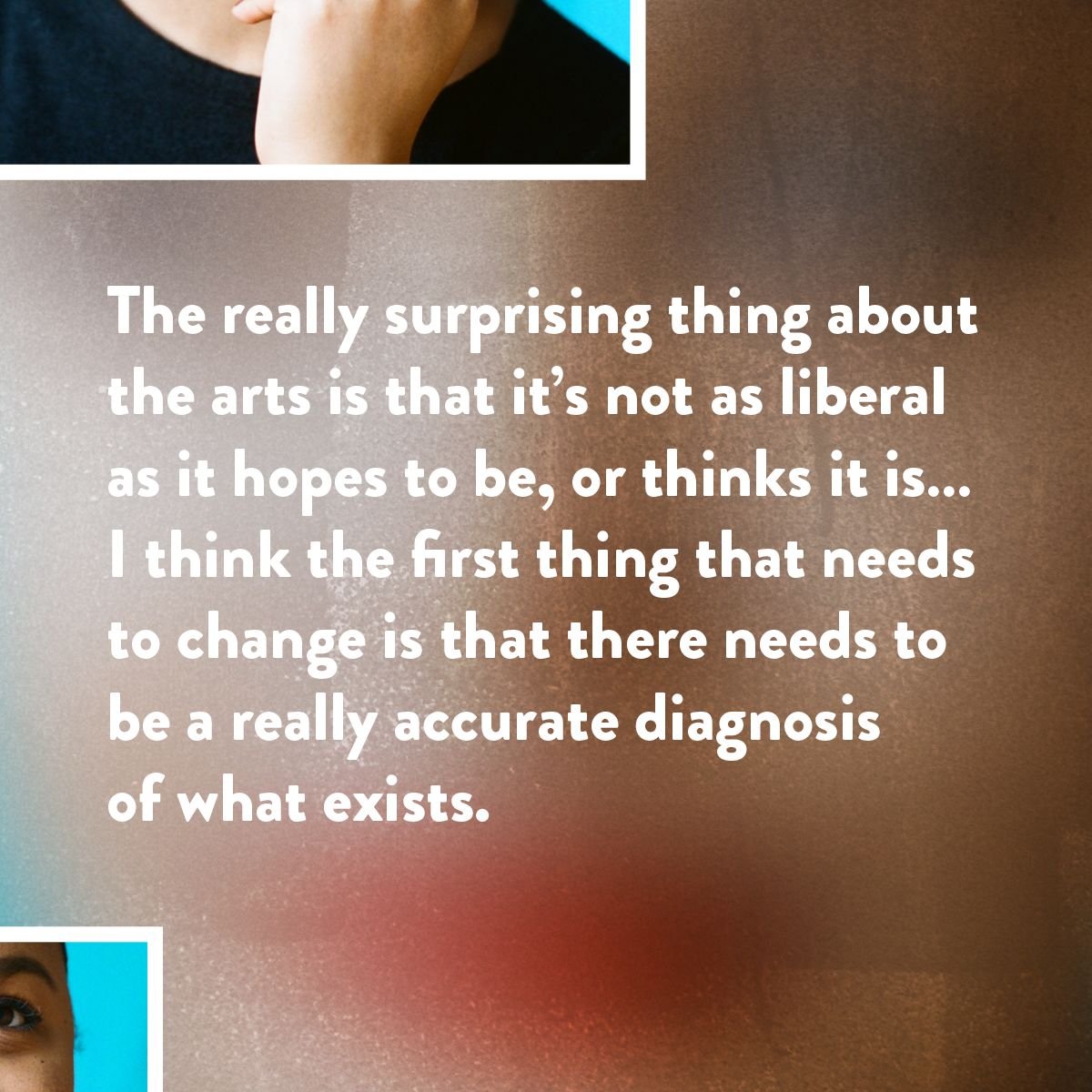
Keep up to date with Ola’s work on her website
Interview carried out by Hannah Robathan and Isabella Pearce, co-founders of shado



